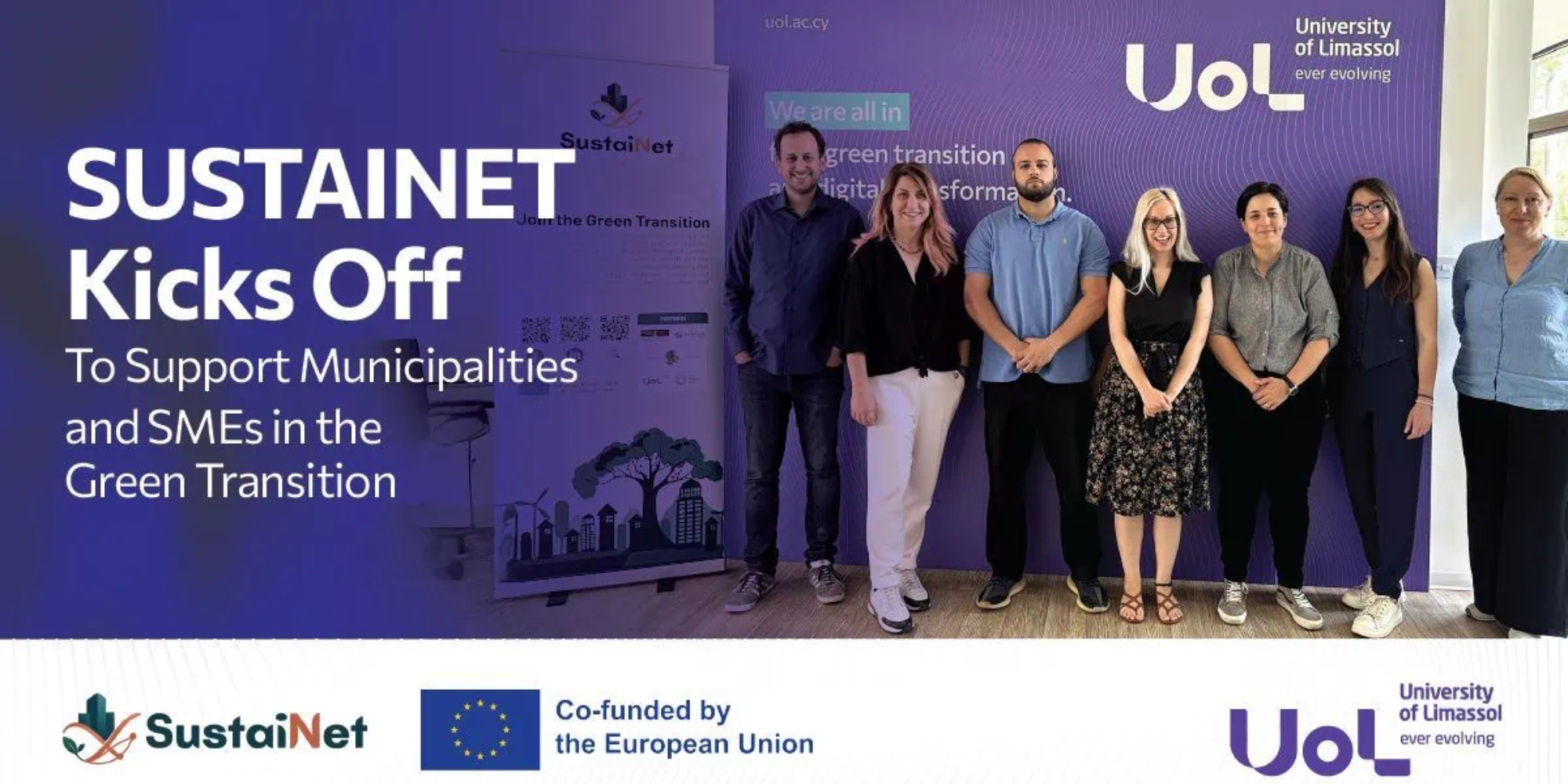We are excited to announce the official launch of the SUSTAINET project– Empowering Local Governance for Sustainable Economic Growth through a network of Green Business Innovation Hubs (GBICs). SUSTAINET is co-funded by the European Union under the Erasmus+ programme (KA220-VET) and brings together a diverse consortium of partners from 3 European Countries (Greece, Cyprus and Bulgaria). The partnership is comprised by the University of Economics and Business (Coordinator), the University of Limassol (UoL), Cleantech Bulgaria, the Academy of Athens, and the Cyprus Chamber of Commerce and Industry.
At its core, SUSTAINET aims to empower local communities lead the way in building a greener future. The project supports the creation of GBICs which are local hubs that will provide practical tools, guidance, and space for municipalities and businesses to test, develop, and scale sustainable solutions.
These centres are more than just support structures. They are designed to bring people together by encouraging innovation, green entrepreneurship, and collaboration between public and private actors. Along the way, SUSTAINET will also help develop green skills, offer self-assessment tools for municipalities, and create opportunities for hands-on learning through pilot projects, training sessions, and networking events.
The first face-to-face meeting of the partnership was hosted by UoL in Cyprus on May 20th and 21st, 2025, marking the start of a dynamic collaboration aimed at strengthening local capacities for sustainable development.
The two-day kick-off meeting was more than just introductions. It provided a space for partners to reflect on early progress, clarify expectations, and make practical decisions to strengthen the project’s next steps.
During the meeting, the partnership discussed the initial data collected through desk research, focus groups, and interviews with stakeholders, and the insights produced from mapping the landscape and hearing the voices of the community. Additionally, the consortium focused on stakeholder engagement, emphasising the importance of building meaningful, two-way communication with municipalities and small and medium-sized enterprises (SMEs) — not just as project participants but as co-creators in the green transition.
The next steps of the project involve the development of the tools to be used for the implementations as well as the education of the stakeholders who participate in this project.
Stay connected and follow the journey of the SUSTAINET project on Facebook and LinkedIn to learn more about its innovative activities and impact!
Source: University of Limassol | What’s on | News (https://tinyurl.com/ykwhy89c)
